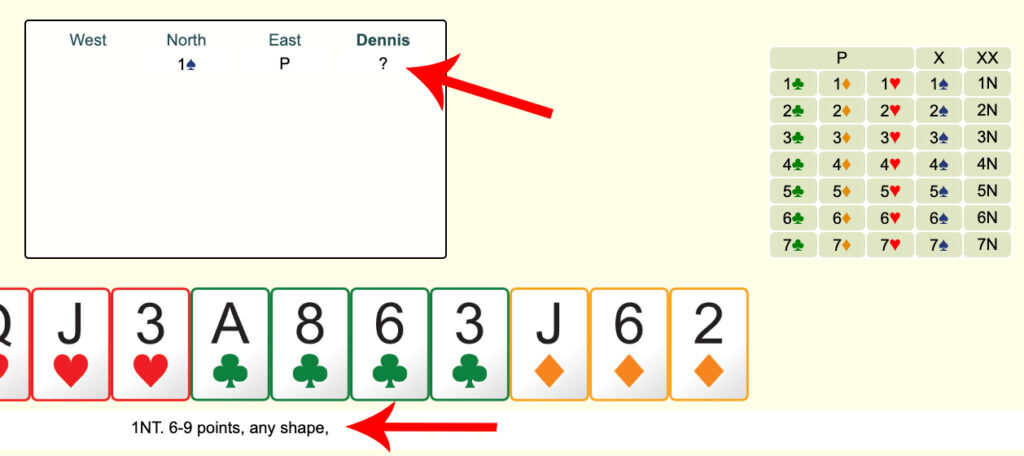The Fastest Way To Improve Your Bridge Score
Bridge is a game of two halves, the bidding and the play. While learning the bidding rules is the biggest challenge for beginner Bridge players, significant gains can be made by learning effective ‘card play’ techniques. Card play lessons tend to be easier to learn and can make a big difference to your score – playing online and also when playing with friends/family or at your Bridge club.
On 60SecondBridge the game provides hints for bidding. Just click on the ‘?’ question mark:

on the bidding table and you will see a suggested bid displayed below your cards. You can also click on any of the bids by your partner or opposition to see the reason for their bids displayed. The bidding engine in 60SecondBridge is very capable. It provides a challenging game for beginners and intermediate players.
But Try This For The Next Few Days
Since the bidding suggestions will usually get you to the right contract, for the next few days accept all the bidding hints and focus on improving the ‘card play’ portion of your game. On 60SecondBridge we have 16 ‘play’ lessons in our ‘Learn Card Play – Declarer‘ course and a further 20 lessons in the ‘Card Play for the Defense‘ course.
Topics include:
- General Card play Principles
- How to plan the game before playing
- Ruffing
- Duckings
- Finessing
- Squeeze Plays
- Signals
- Opening Leads
- Discards
- Card Counting
So give it a go and compare your scores. Once you’ve mastered the card play portion of your Bridge game you can go back to improving your bidding with the confidence that when you end up in the right contract you will be in a strong position to achieve a healthy score.
I not getting the full results on my screen as arrow won’t move and only part of results